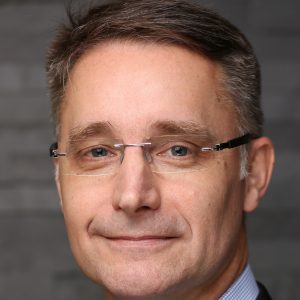System Autonomy – The Next Level of Automation Everywhere
 Abstract:
Abstract:
Automation is currently dominated by four major trends: Modularity, Connectivity, Digital Twins, and Autonomy. What is new – despite some trendy labels for the technologies – is the enormous computational power combined with a significant increase in bandwidth and address space, connecting devices almost anywhere, anytime.
Since the early beginning of automation as an independent scientific discipline, complex problems have been separated into controllable and observable subtasks. Discrete manufacturing operations have been designed as connected cells on the shop floor, continuous and batch operations in process industries split into unit operations. Controller designs are based on a suitable and reliable model of the real process and optimization algorithms have been implemented in more and more powerful controllers.
System autonomy on a more abstract level looks and feels like model-predictive control on steroids and requires high-fidelity models of the real world at runtime. Many people – experts and users – are excited by the upcoming opportunities, applying artificial intelligence and data analytics to real-world problems. But just like in the early years of automatic feedback control, a few questions have to be answered, before we should consider handing more and more complex tasks over to machines:
- How are we going to prove “system stability” for an autonomous system?
- How are we going to predict systems behavior by Digitals Twins outside the previously explored
space? - What are the benefits for humans, society, and economy using the new technologies?
Biography:
Dr. Kurt D. Bettenhausen is Senior Vice President of Siemens Corporation, Corporate Technology. Located in Princeton, New Jersey in the USA, Corporate Technology is one of several Siemens Corporate Technology research and development centers worldwide. Since its founding in 1977, it has helped pioneer a broad range of advancements in major industries, delivering innovations to the Siemens global family as well as government agencies, academic institutions, and other organizations.
Before joining Corporate Technology, Dr. Bettenhausen headed up the Engineering and Consulting Business of Siemens’ Industrial Automation Division based in Frankfurt, Germany. He began his career in the corporate research and technology department of Hoechst. Later, he held senior positions in marketing, sales and product management at Axiva.
Bettenhausen attained a master’s degree and a Ph.D. in electrical engineering from the Technical University of Darmstadt.
For additional information see https://www.linkedin.com/in/kurtdbettenhausen
